Polaroid Play 3D Pen vs. 3Doodler Create Plus: Which is the best 3D pen?
Both the Polaroid Play 3D Pen and the 3Doodler Create Plus put creativity in the palm of your hand
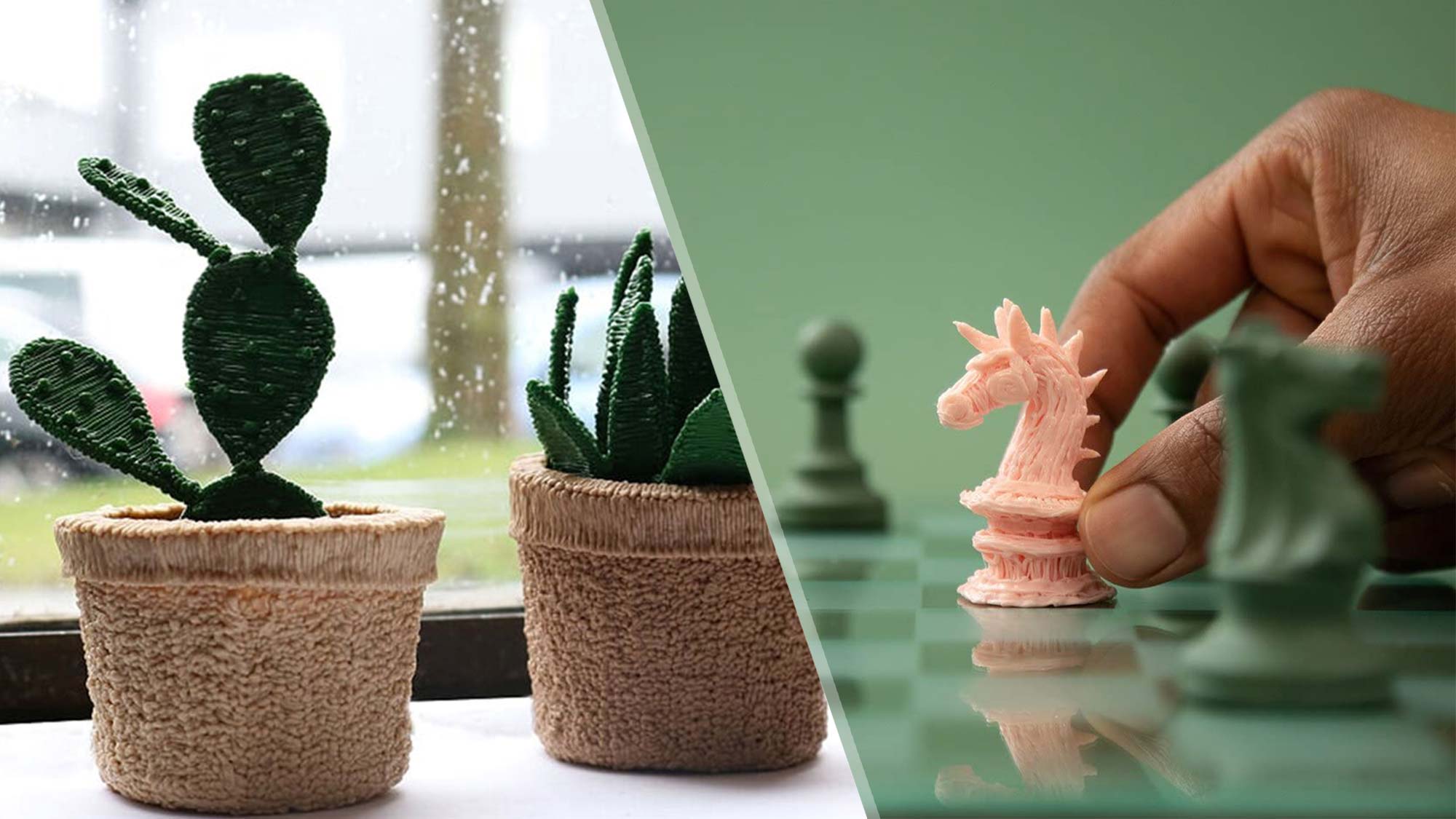
As awesome as the best 3D printers are, they’re also expensive, particularly if you’re looking for a device that your kids can use. Fortunately, there’s a cheaper way to give your kids a taste of 3D printing — a 3D pen.
These handheld devices work in the same way as 3D printers, melting filament to be laid out in a design springing from your imagination. While a 3D printer uses gears and motors to move the print head around, 3D printing pens use you: you use them as you would an ink pen, only here you’re drawing with plastic filament to create a 3D object instead of a two dimensional sketch.
To determine which 3D pen offers the best introduction to 3D printing, we tested two — the $39 Polaroid Play 3D Pen and the $79 3Doodler Create Plus. Both pens from Polaroid and 3Doodler work the same way: you insert 3D printing filament into one end and a motor pushes it through a heated print head. The melted materials squish out of the end of the pen and quickly cools. As you move the pen, the cooling filament forms the shape: move it quickly, and you get a thin string of filament. Move it slowly, and you get a thicker line of filament.
Which pen handles the job better? Read our Polaroid Play 3D Pen vs. 3Doodler Create Plus face-off to find out the best 3D pen overall for crafters looking to shrink 3D printing down to the palm of their hand.
Polaroid Play 3D Pen vs. 3Doodler Create Plus: Price and availability
The Polaroid Play 3D Pen clearly beats the 3Doodler Create Plus on price, coming in at half the cost of its rival 3D pen. But it gets a little more complicated when you start buying extra filament for printing.
For a regular price of $39, you get the Polaroid Play 3D Pen and four 15 foot long rolls of filament. The 3Doodler Create costs $79.99, but comes with much more filament: 3 filament packs, each with 25 10-inch pieces in various colors and finishes. 3Doodler’s pen also comes with an excellent book that includes how-to tips and ideas.
When it’s time to order more filament for printing. a 20-pack of filaments for the Polaroid Play costs $17.49, while a refill bundle of 10 packs of filament (each with 25 pieces) for the 3Doodler Create costs $42.19. So, the 3Doodler is more expensive overall, but it also offers a much wider selection of materials to print with.
Sign up to get the BEST of Tom's Guide direct to your inbox.
Get instant access to breaking news, the hottest reviews, great deals and helpful tips.
Winner: Polaroid Play
Polaroid Play 3D Pen vs. 3Doodler Create Plus: Design
These two 3D printing pens look quite similar, with both sharing the same design: filament goes into one end and out the other. The 3Doodler Create Plus is smaller, though, and feels much more comfortable in the hand, which is important if you are building larger objects.
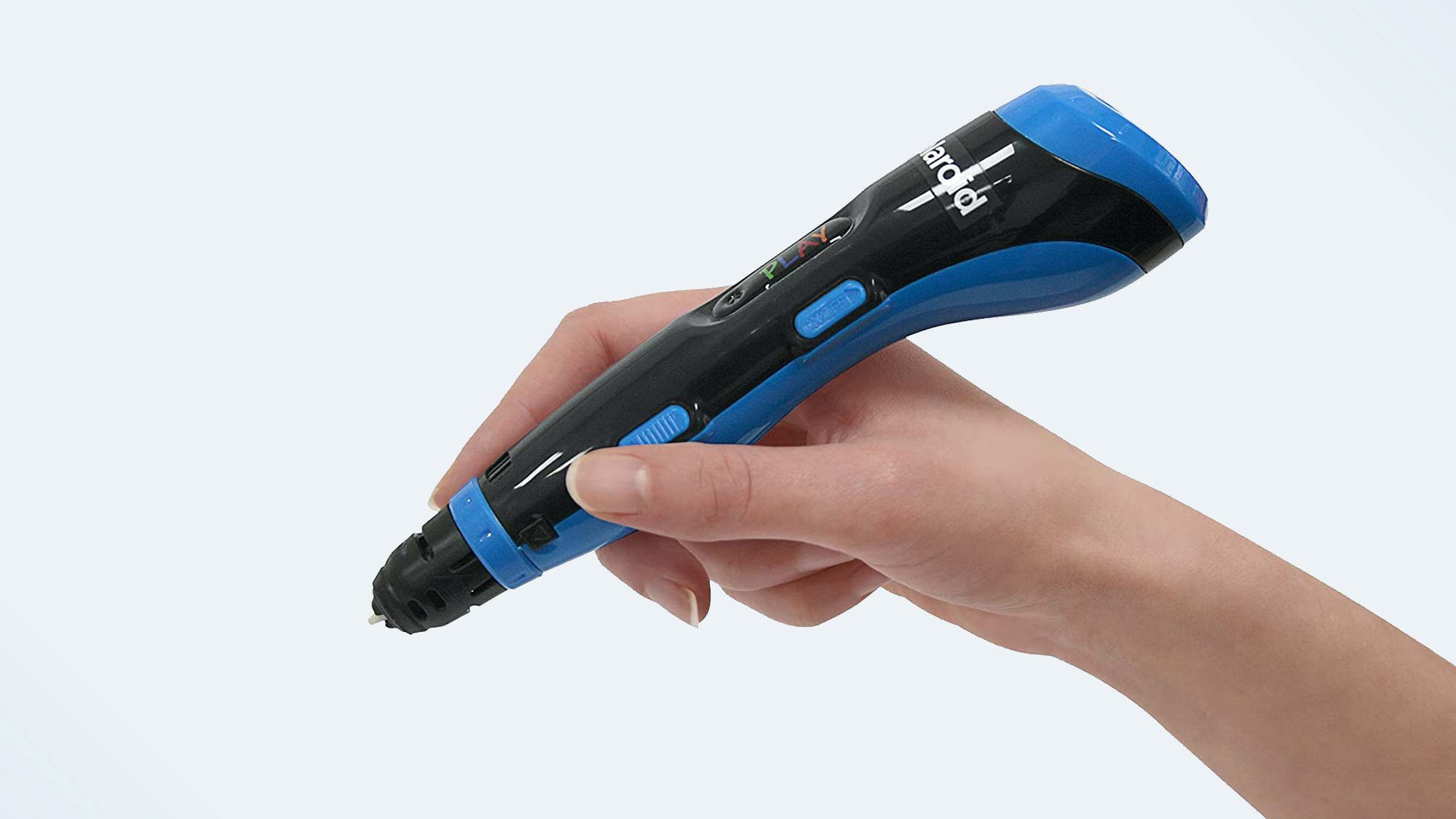
Both pens also come with a few extra parts. The Polaroid Pen includes a plastic build plate the size of a cell phone, while the 3Doodler comes with a similar letter-sized plate. Both of these serve similar purposes — you can use them as a base to print on over a template or outline.
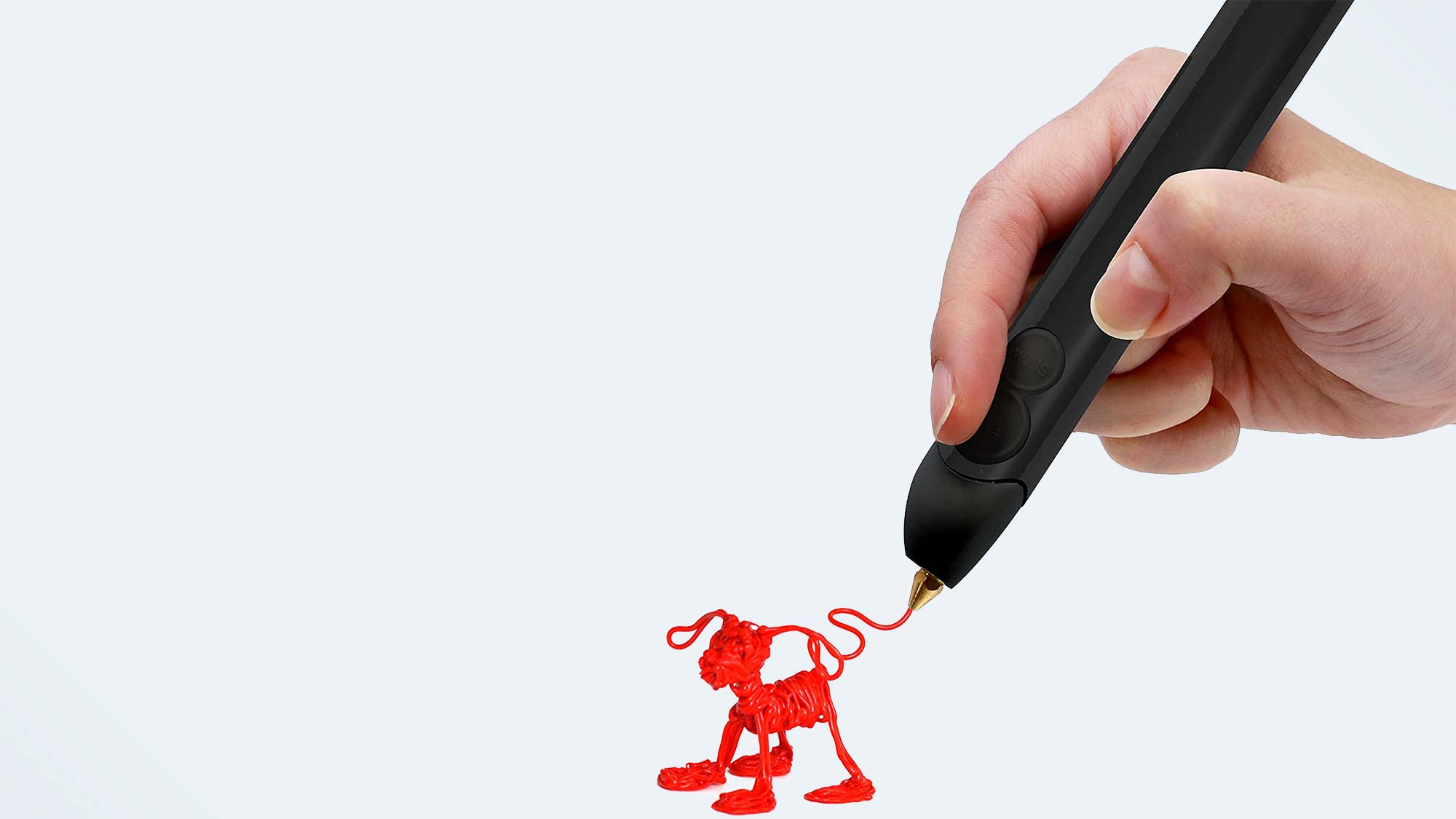
For the Polaroid pen, you use this with the Polaroid Trace App, available for iOS or Android. This converts an image into a black outline or loads a pre-created template from a selection included in the app. You then place the build plate on top of your cell phone and trace the template to create your work of art.
The 3Doodler Create Plus takes this a little further. You can download stencils, print them out and put them under the build plate to trace out. 3Doodler offers hundreds of stencils, from toys to models of birds and animals to architectural models. These stencils also include build tips and guides for assembling the models.
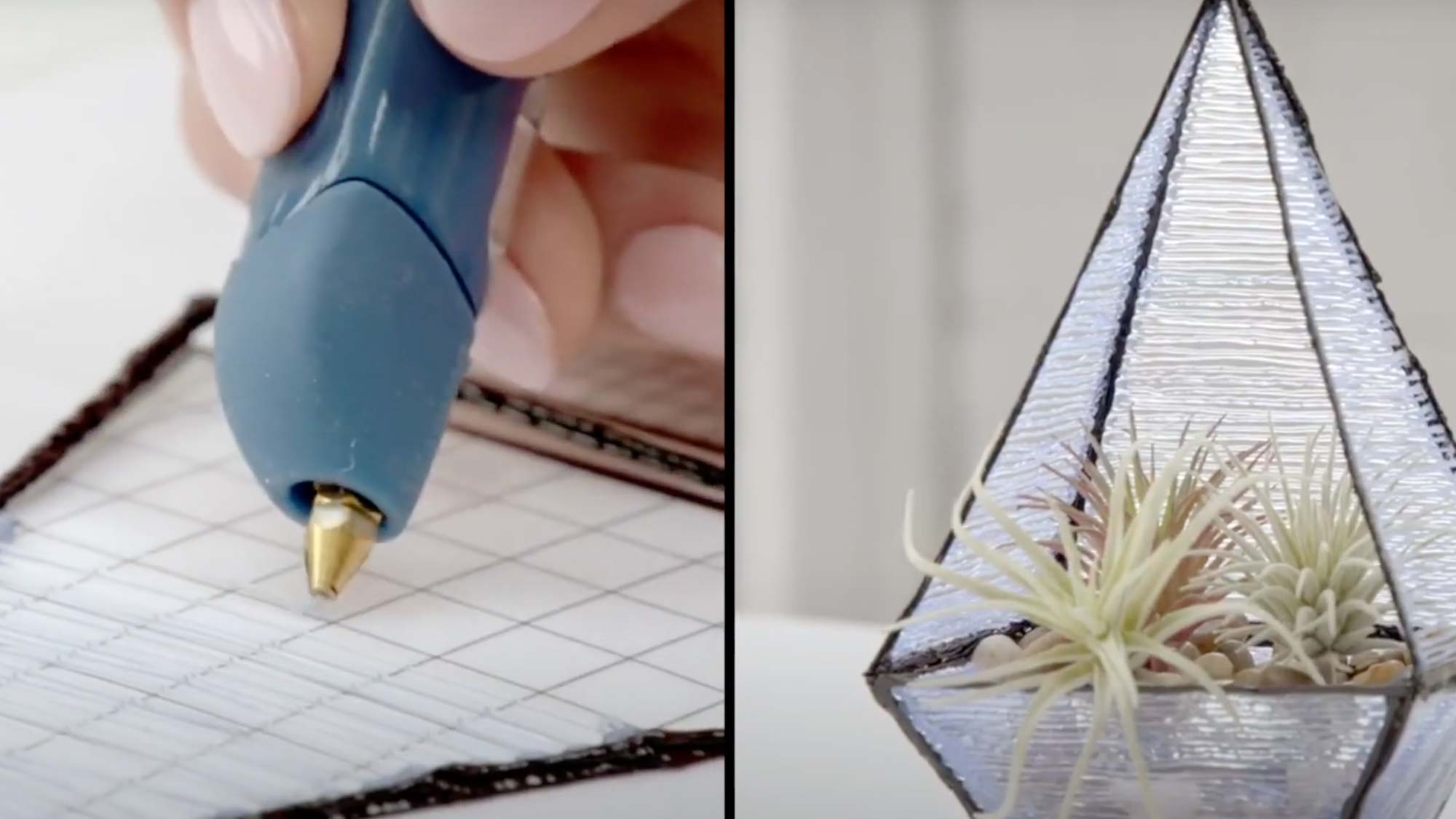
The 3Doodler also comes with the option to replace the nozzle, and a $19.99 kit offers six different shaped nozzles. Rather like a cake decorating tool, different shaped and sized nozzles produce outputs with different shapes; it also includes a smoothing tool that can smooth the extruded plastic to make thinner layers.
One thing to note here: the Polaroid Play 3D Pen requires a USB power source and doesn’t come with a power adapter to plug into the wall. Any USB power source that can supply 2 Amps will do, though, so the USB power adapter for your phone or a USB port on your computer will probably work. The 3Doodler Create Plus comes with a plug-in power adapter.
Winner: 3Doodler Create Plus
Polaroid Play 3D Pen vs. 3Doodler Create Plus: Performance
In testing both 3D pens, I found that the 3Doodler Create Plus was the easier one to use. It’s smaller and fits better into the hand, two factors that its younger target audience will appreciate. An easy-to-hold device makes it more comfortable to use, which is important when you’re operating the pen for a while.
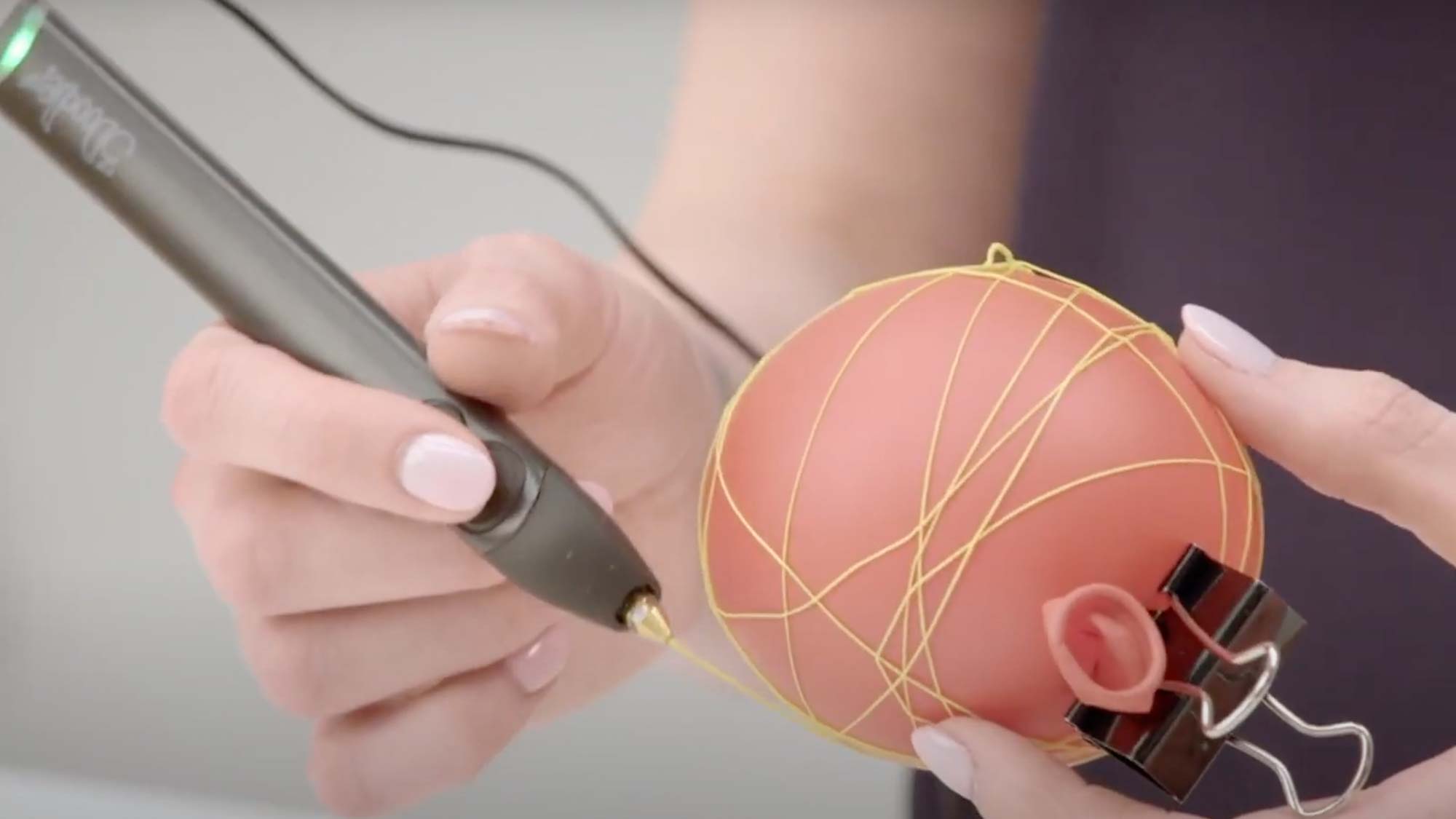
Both the Polaroid Play and 3Doodler Create Plus use buttons to control the flow of plastic, with the ones that stop and start the flow under the index finger. Again, the Create Plus is a little more comfortable, with the buttons on the top of the pen.
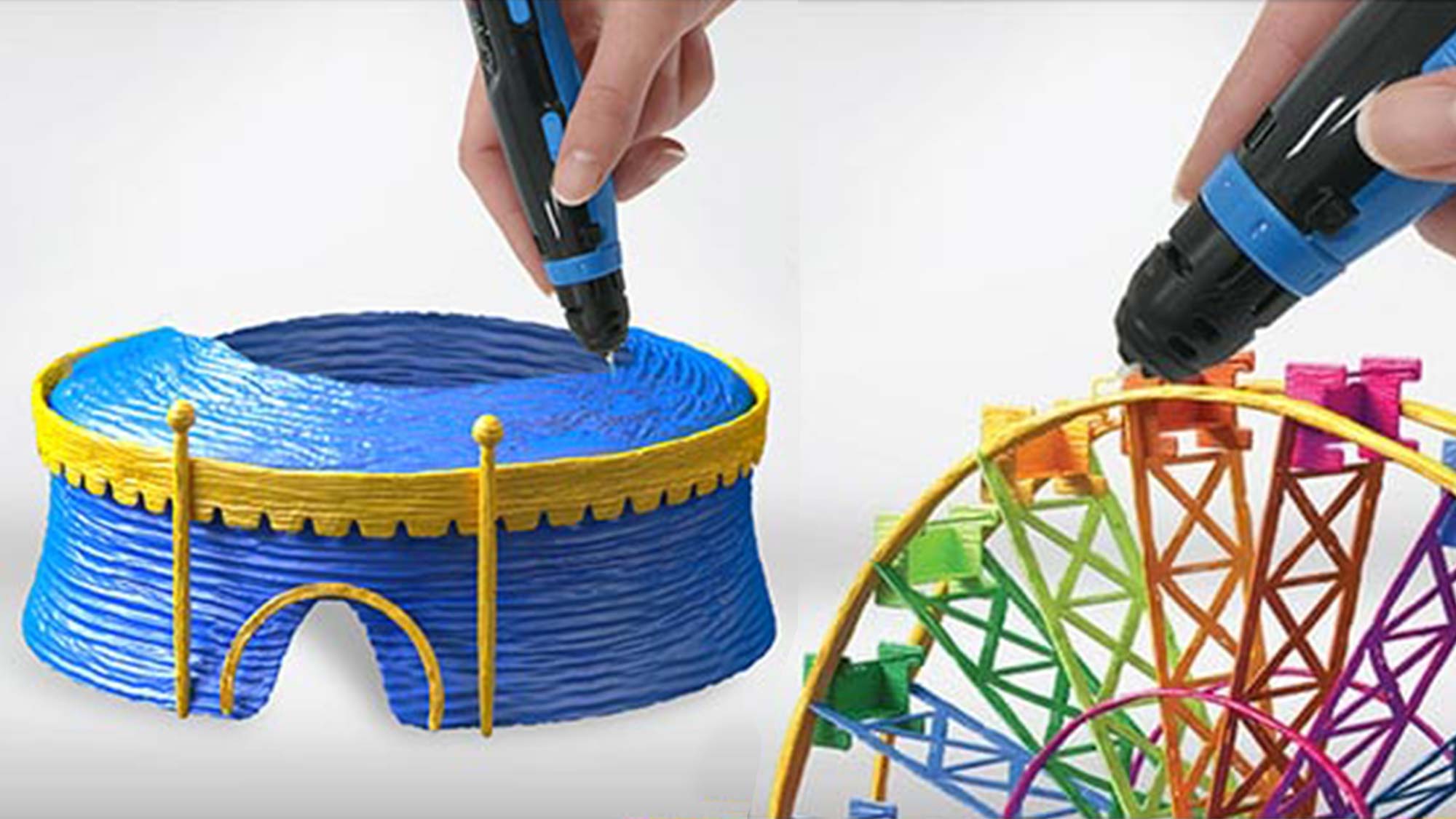
Both pens produce an even, smooth flow of melted plastic, but the Create Plus has a protruding nozzle (or, perhaps a nib) that makes it easier to see where the plastic is going. That helps when you are doing fine work or joining multiple pieces of plastic together.
Winner: 3Doodler Create Plus
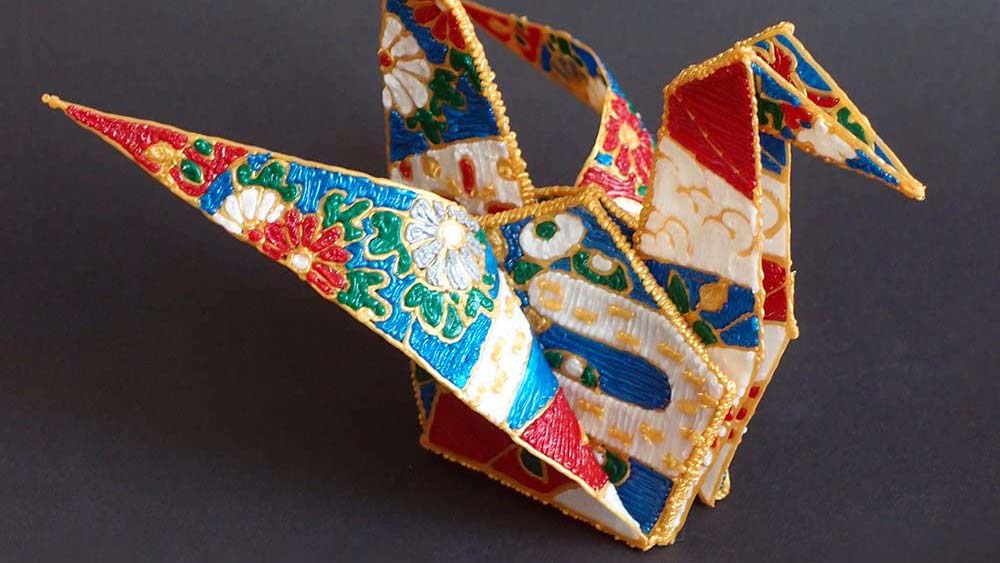
Polaroid Play 3D Pen vs. 3Doodler Create Plus: Materials
Both pens can print with PLA, a lightweight plastic material that is commonly used in 3D printing.
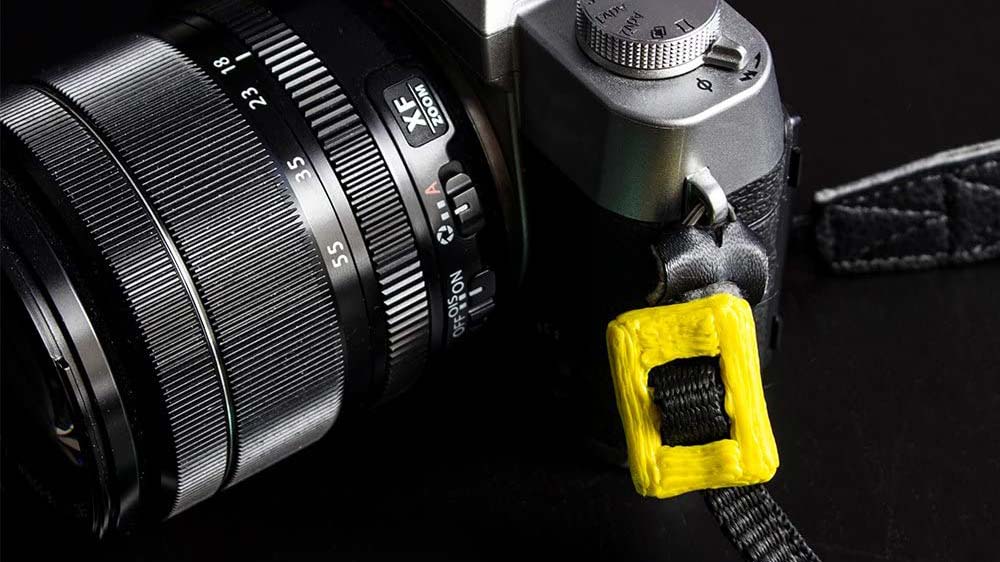
The 3Doodler Create goes one step further, though, as it can also print with ABS, the plastic that Legos are made out of. This is a lot tougher than PLA, but requires a higher temperature to melt. ABS cools quicker, so it’s ideal for 3D models. Try that with PLA and you’ll get a soggy mess.

The 3Doodler Create can also use two additional types of materials: flexible filament and a wood texture filament that produces a wood-like finish. 3Doodler also has a rather interesting approach to selling you more materials: as well as packs of varying colors and textures, it produces theme packs, such as a rather nice $30 pack that includes the filament colors to build a replica of Fallingwater, the iconic Frank Lloyd Wright-designed house.
Winner: 3Doodler Create Plus

Polaroid Play 3D Pen
Our expert review:
Specifications
Reasons to buy
Reasons to avoid

3Doodler Create Plus
Our expert review:
Specifications
Reasons to buy
Reasons to avoid
Polaroid Play 3D Pen vs. 3Doodler Create Plus: Verdict
Our Polaroid Play 3D Pen vs. 3Doodler Create Plus testing found that both pens are a lot of fund to work with, and they can both create some interesting models. Your choice will come down to how committed you think your kids — or you — will be about using 3D pens to create objects and models.
| Row 0 - Cell 0 | Polaroid Play 3D Pen | 3Doodler Create Plus |
| Price (20 points) | 17 | 14 |
| Design ( 25 points) | 15 | 20 |
| Performance (30 points) | 20 | 26 |
| Materials (25 points) | 13 | 22 |
| Overall (100 points) | 65 | 82 |
If using a 3D pen seems like a casual activity, turn to the Polaroid Play 3D pen and a refill pack of filament. At $39.99 for the pen and $17.49 for the filament, it won’t break the bank if your kids have fun with the pen for a couple of days and get bored.
But serious 3D printers and hobbyists will find more to like about the $79.99 3Doodler Create Plus. Its support for more materials and helpful guides mean they’ll be able to build more complex designs. And the pen is comfortable enough to use to encourage people to come back for more. The 3Doodler Create Plus is the pen to get if you want to do more than dabble in this off-shoot of 3D printing, which is why we include it among our best 3D printers.
Richard Baguley has been working as a technology writer and journalist since 1993. As well as contributing to Tom's Guide, he writes for Cnet, T3, Wired and many other publications.
